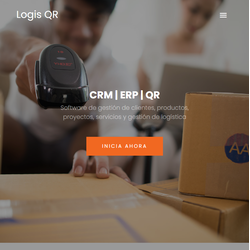
Private Clouds
Nowadays, document management has become a key element for the success of any company. The digitization of files, efficient management of information, and data security are priorities in the corporate environment. Faced with these challenges, private clouds with open access software (open source) offer a flexible, secure and scalable solution for document management. The main advantages of this combination are explored below.
1. Total Control over Data
One of the biggest advantages of using private clouds with open access software is the total control that companies have over their data. Unlike public cloud solutions, where servers are shared with other organizations, private clouds allow companies to host their own data on dedicated servers. This guarantees greater privacy and allows deep customization of access policies.
In addition, the use of open source software eliminates dependence on specific vendors, providing more freedom to adjust and modify tools according to the particular needs of the company.
2. Enhanced Security
Security is a fundamental aspect for document management, especially in companies that handle confidential information. Private clouds offer a more secure environment by allowing comprehensive control over security, encryption and data access policies.
Open access software allows source code to be audited, which helps identify possible vulnerabilities and implement customized solutions that strengthen security. In addition, security protocols and protection layers are configurable and adjustable to internal regulations or external regulations that the company must comply with.
3. Scalability and Flexibility
One of the reasons why companies are opting for private clouds with open access software is the ability to adapt to business growth. These types of solutions allow vertical and horizontal scalability without depending on expensive licenses or limitations imposed by commercial providers.
Businesses can add additional storage capacity, processing power or functionality as needed, without having to migrate to another service or tool. As it is open source software, the flexibility to develop custom solutions is practically unlimited.
4. Cost-effectiveness
Using open access software in a private cloud can also result in significant cost reduction. Being open source, the software is generally available for free or at low cost, avoiding the high prices of commercial licenses.
While it is true that setting up and maintaining a private cloud requires an initial investment in infrastructure and technical talent, long-term operating costs can be considerably lower than traditional commercial solutions. Additionally, companies are not subject to forced updates or changes to terms of service that are often associated with proprietary software vendors.
5. Customization and Continuous Development
Open source software offers the advantage of being completely customizable. Companies can develop specific functionalities for their document management system without being limited to the features predefined by a provider. Additionally, since the code is available to any user, it is possible to take advantage of a large community of developers who constantly contribute to improving the software.
This approach encourages continuous innovation, as companies can implement improvements and adaptations as their needs evolve or new technologies emerge.
6. Interoperability and Compatibility
Open access software solutions are typically highly compatible with a wide variety of systems and document formats. This is crucial for companies that manage a diverse technology ecosystem or need to integrate multiple tools into their workflow.
Interoperability facilitates the integration of the private cloud with other company management systems, such as CRM, ERP, or collaboration systems, creating a unified and efficient environment.
7. Regulatory Compliance
For many industries, regulatory compliance is a crucial aspect of document management. Private clouds offer the possibility of complying with local and international regulations, such as the General Data Protection Regulation (GDPR) in Europe or data privacy laws in Latin America.
Open access software can be configured to strictly follow regulatory requirements, giving companies more control over document retention, access to sensitive information, and protection of personal data.
Private clouds with open access software represent a powerful solution for document management within a company. With advantages such as complete data control, enhanced security, flexibility, and cost-effectiveness, companies can manage their information efficiently and in a personalized way. Additionally, using open source software ensures the ability to adapt and grow with changing business needs, without sacrificing security or regulatory compliance.
In an increasingly digital and competitive business environment, private clouds based on open access technologies are consolidating as a strategic option for those organizations seeking to maximize control and efficiency in document management.


